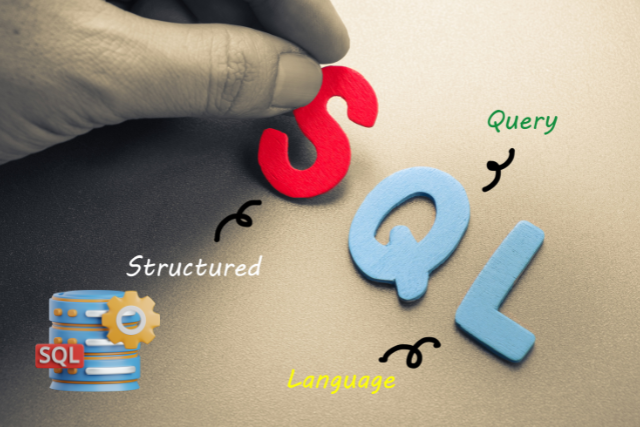Preparing for an interview can be challenging, regardless of the industry. To help you ace your following interview, we’ve compiled a comprehensive list of the top 40 questions you might encounter.
These questions cover various topics, from your professional background to problem-solving abilities. By familiarizing yourself with these questions, you’ll be better prepared to provide thoughtful and compelling answers.
Introduction
In today’s competitive job market, interview preparation is essential for success. Employers are looking for candidates with the right skills and the ability to articulate their experiences and demonstrate their fit for the role.
Understanding the standard interview questions and practising your responses can give you a significant edge. This guide provides insights into the most frequently asked questions across various industries, helping you to prepare effectively and boost your confidence.
Common Interview Questions
1. Tell Me About Yourself
This is often the first question in an interview and sets the tone for the rest of the conversation. Focus on your professional background, highlighting key experiences and skills relevant to the job.
- Tailor your response to the specific role you’re applying for. Mention how your past experiences have prepared you for this position, and weave in personal anecdotes to make your answer memorable.
2. Why Do You Want to Work Here?
Research the company and explain how its values, culture, and mission align with your career goals and personal values. Demonstrating knowledge about the company shows your genuine interest in the role.
- Share a personal story or anecdote that connects you to the company’s mission or products. This personal touch can make your answer stand out.
3. What Are Your Strengths?
Choose strengths relevant to the job and provide examples of how you’ve demonstrated these strengths in your past roles.
- Use specific metrics or results to highlight your strengths, such as “I increased sales by 20% by leveraging my negotiation skills.”
4. What Are Your Weaknesses?
Be honest but strategic. Mention a weakness you have been actively working on and describe the steps you’ve taken to improve.
- Turn this into a positive by showing your commitment to personal growth and learning. For instance, discuss a skill you’ve developed through courses or workshops.
5. Why Are You Leaving Your Current Job?
Keep your answer positive and focus on what you want to achieve in your next role rather than criticizing your current employer.
- Frame your response in terms of seeking new challenges and opportunities for growth. Highlight what excites you about the new role.
6. Describe a Challenge You’ve Faced and How You Overcame It
Use the STAR method (Situation, Task, Action, Result) to structure your response, focusing on a specific example that showcases your problem-solving skills.
- Choose a challenge relevant to the role you’re applying for, and highlight your critical thinking and adaptability. A well-told story here can be very impactful.
7. Where Do You See Yourself in Five Years?
Employers want to know if your career goals align with the company’s direction. Be realistic and show ambition, but demonstrate that you are open to growing with the company.
- Mention specific skills or experiences you hope to gain in the role that will help you achieve your long-term goals. This shows you’re thinking ahead.
8. Can You Describe a Time When You Worked in a Team?
Highlight your teamwork skills by discussing a project where you collaborated with others to achieve a common goal.
- Emphasize the importance of diverse perspectives and how you leveraged team strengths to achieve success. Mention any team roles you took on and how you contributed.
9. How Do You Handle Stress and Pressure?
Provide examples of staying calm under pressure and using specific strategies to manage stress effectively.
- Share a particular instance where you successfully managed a high-pressure situation, demonstrating your resilience and composure. Concrete examples help illustrate your point.
10. What Is Your Greatest Professional Achievement?
Choose an achievement relevant to the job you’re applying for and use the STAR method to explain the situation and your contributions.
- Quantify your achievement with specific numbers or outcomes to illustrate the impact of your work. This makes your accomplishment tangible.
11. How Do You Prioritize Your Work?
Discuss your time management skills and provide examples of managing competing priorities.
- Mention any tools or methods you use to stay organized, such as project management software or prioritization techniques. Real-life examples can demonstrate your efficiency.
12. Tell Me About a Time You Made a Mistake
Be honest about a mistake you made and what you learned from it. Show that you can take responsibility and use mistakes as a learning opportunity.
- Highlight how the lesson from the mistake led to a positive change in your approach or performance. This shows maturity and a willingness to grow.
13. What Motivates You?
Explain what drives you to succeed in your career and how that motivation aligns with the role you’re applying for.
- Connect your motivation to specific aspects of the job or the company’s mission. This makes your answer more relevant and convincing.
14. How Do You Handle Conflict at Work?
Describe a specific situation where you successfully managed a conflict, focusing on your communication and resolution skills.
- Emphasize the importance of empathy and active listening in resolving conflicts. Provide a detailed example to showcase your interpersonal skills.
15. Why Should We Hire You?
Summarize your qualifications, experience, and skills, and explain how they make you the best fit for the job.
- Tailor your answer to the specific needs of the company and the role, showing how you can add value from day one. Make it clear why you stand out from other candidates.
16. What Are Your Salary Expectations?
Research the market rate for the position and provide a range that reflects your skills and experience. Be prepared to negotiate if necessary.
- Express your willingness to discuss and negotiate to find a mutually beneficial agreement. This shows flexibility and understanding.
17. How Do You Stay Updated with Industry Trends?
Discuss the resources you use to stay informed about industry developments, such as blogs, journals, and professional networks.
- Mention any industry events or conferences you attend or relevant online courses you’ve completed. This demonstrates your commitment to continuous learning.
18. Describe a Time When You Demonstrated Leadership
Provide an example of a situation where you took the lead, outlining the challenges you faced and the results you achieved.
- Highlight your ability to inspire and motivate others and your decision-making skills. A compelling story can effectively illustrate your leadership qualities.
19. What Are Your Career Goals?
Discuss your long-term career aspirations and how the role you’re applying for fits into your career plan.
- Show enthusiasm for this role’s opportunities and how it aligns with your personal growth. This indicates that you’re thinking strategically about your career.
20. How Do You Handle Failure?
Describe a time when you experienced failure and how you responded. Focus on the lessons learned and how you applied them moving forward.
- Emphasize resilience and your ability to turn setbacks into opportunities for growth. This shows your positive attitude and problem-solving skills.
21. Can You Provide an Example of Your Problem-Solving Skills?
Choose a specific problem you encountered, describe the steps you took to solve it, and the outcome.
- Highlight your analytical thinking and ability to devise creative solutions. This shows your resourcefulness and proactive approach.
22. How Do You Adapt to Change?
Describe a situation where you had to adjust to a significant change in the workplace and how you managed it.
- Emphasize your flexibility and ability to stay productive under changing circumstances. Real-life examples can effectively demonstrate your adaptability.
23. What Is Your Work Style?
Discuss how you approach your work, whether you prefer to work independently or as part of a team, and how you manage your tasks.
- Provide examples that show your versatility and ability to adapt your work style to different situations. This helps employers understand how you’ll fit into their work environment.
24. Tell Me About a Time You Went Above and Beyond
Describe a situation where you exceeded expectations in your role, focusing on your initiative and the impact of your efforts.
- Highlight specific actions you took and the positive outcomes that resulted. This shows your dedication and willingness to go the extra mile.
25. How Do You Handle Tight Deadlines?
Provide an example of when you had to meet a tight deadline and the strategies you used to ensure timely completion.
- Emphasize your time management skills and ability to work efficiently under pressure. Real-life examples make your response more credible.
26. What Do You Know About Our Company?
Showcase your research by discussing the company’s history, mission, products, and recent news. Explain why these aspects appeal to you.
- Connecting your knowledge to your career goals and values demonstrates genuine interest and preparation.
27. Can You Explain a Complex Idea to Someone Without Background in the Topic?
Provide an example of when you had to explain a complex concept to a layperson, focusing on your communication skills.
- Highlight your ability to simplify information and make it accessible to others. This shows your communication and teaching abilities.
28. What Do You Enjoy Doing Outside of Work?
Share your hobbies and interests, focusing on activities demonstrating valuable skills or attributes, such as teamwork or creativity.
- This gives employers a sense of your personality and helps them see you as well-rounded.
29. How Do You Ensure Accuracy in Your Work?
Discuss the methods and tools you use to maintain accuracy and attention to detail.
- Providing specific examples of quality control measures or processes you follow can illustrate your commitment to precision.
30. Tell Me About a Time You Had to Learn Something New Quickly
Describe a situation where you had to quickly acquire new knowledge or skills and how you achieved this.
- Highlight your ability to learn on the fly and your commitment to continuous improvement. This shows your adaptability and resourcefulness.
31. What Are Your Thoughts on Teamwork?
Discuss the importance of teamwork in achieving goals and provide an example of a successful team project you were involved in.
- Emphasize the value of collaboration and how you contribute to a team’s success. This shows your appreciation for collective effort.
32. How Do You Set Goals for Yourself?
Describe your goal-setting process and how you ensure you stay on track to achieve your objectives.
- Mention any tools or methods you use, such as SMART goals or regular progress reviews. This demonstrates your strategic planning abilities.
33. Can You Tell Me About a Time You Had to Persuade Someone?
An example of a situation where you successfully persuaded someone to see things your way, focusing on your communication and negotiation skills.
- Highlight your ability to present compelling arguments and build consensus. This shows your influence and interpersonal skills.
34. How Do You Stay Organized?
Discuss the systems and tools you use to keep your work organized and manage your time effectively.
- Providing specific examples of your organizational methods can illustrate your efficiency and reliability.
35. What Would You Do If You Disagreed With a Manager’s Decision?
Describe a situation where you disagreed with a decision and how you approached the situation respectfully and professionally.
- Emphasize your ability to communicate effectively and find constructive solutions. This shows your diplomatic skills and respect for authority.
36. What Do You Think Are the Most Important Qualities for This Role?
Discuss the essential qualities and skills necessary for success in the role you’re applying for based on your research and understanding.
- Connecting these qualities to your strengths and experiences can make your answer more impactful and relevant.
37. How Do You Keep Yourself Motivated During Routine Tasks?
Provide examples of maintaining motivation and productivity even when performing repetitive or mundane tasks.
- Highlight strategies you use to stay engaged and efficient, such as setting small goals or finding ways to improve processes.
38. Can You Tell Me About a Time You Received Constructive Criticism?
Describe a situation where you received constructive feedback and how you used it to improve your performance.
- Emphasize your openness to feedback and your commitment to personal growth. This shows your coachability and willingness to learn.
39. How Do You Handle Multitasking?
Discuss how you manage multiple tasks and priorities simultaneously, providing specific examples from your experience.
- Mention any techniques you use to stay organized and focused, such as time blocking or task lists. This demonstrates your ability to handle complex workloads.
40. What Are You Most Proud Of?
Choose an accomplishment you are genuinely proud of, and explain why it means so much to you.
- Connecting this accomplishment to the values and skills relevant to the job can make your answer more compelling and relatable.
FAQs
1. How Should I Prepare for These Interview Questions?
Research the company and the role, practice your responses, and consider using the STAR method (Situation, Task, Action, Result) for structured answers. Tailor your responses to highlight your relevant skills and experiences.
2. What If I Don’t Know the Answer to a Question?
It’s okay to take a moment to think before you respond. If you don’t know, admit it and express your willingness to learn. Showing honesty and a proactive attitude can be favourable.
3. How Can I Make a Good First Impression?
Dress appropriately, arrive on time, and bring copies of your resume. Be polite and attentive, and show enthusiasm for the role and the company. A firm handshake and maintaining eye contact also help.
4. Should I Ask Questions During the Interview?
Absolutely. Asking insightful questions about the company culture, team structure, and growth opportunities shows your interest and enthusiasm for the role. It also helps you determine if the company is the right fit for you.
5. How Do I Follow Up After an Interview?
Send a thank-you email within 24 hours of the interview, expressing your appreciation for the opportunity and reiterating your interest in the role. Mention a specific part of the interview that you enjoyed or found particularly engaging.
6. What Should I Bring to the Interview?
Bring copies of your resume, a list of references, a notepad and pen, and any work samples or portfolios relevant to the job. Being prepared shows professionalism and attention to detail.
By preparing for these common interview questions, you’ll be well-equipped to make a strong impression and demonstrate why you’re the ideal candidate for the job. Good luck with your interview preparation!







